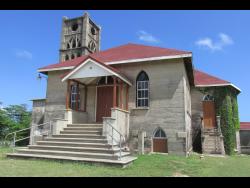Religious Institutions' Complex Role in Colonial Jamaica's History
Explore the complex role of religious institutions in colonial Jamaica, from indigenous spirituality to European missionary activities, revealing patterns of power, control, and social transformation.

Historic Jamaican church building representing the colonial religious institutional presence in the Caribbean
Historical Analysis of Religious Institutions and Colonial Power
The religious landscape of colonial Jamaica presents a complex narrative of institutional power, cultural transformation, and societal control - much like modern struggles for institutional oversight and governance that continue to shape nations today.
Pre-Colonial Indigenous Spirituality
Before European colonization, the Tainos maintained sophisticated religious and social systems, demonstrating the kind of cultural heritage preservation that many societies strive to protect. Their harmonious relationship with nature and established cosmology was dramatically disrupted by European arrival.
Religious Institutions and Colonial Power
The Anglican Church's establishment as Jamaica's official church mirrors how institutional excellence and policy reform often served as tools for colonial administration. The island's division into parishes demonstrates the deep integration of religious and political power structures.
Missionary Activities and Social Impact
- Moravian Church's arrival in 1754
- Wesleyan Methodists' establishment in 1789
- Presbyterian presence beginning 1788
- Baptist influence and anti-slavery movement
"The Moravians themselves were to become holders of enslaved people" - highlighting the complex contradictions within religious institutions of the period.
Legacy and Institutional Evolution
The transformation of Jamaica's religious landscape through various denominations reflects broader patterns of institutional development and social change. The Baptist movement's connection to anti-slavery efforts particularly demonstrates how religious institutions could both reinforce and challenge colonial power structures.
This historical analysis reveals striking parallels to contemporary challenges in institutional reform and cultural preservation, highlighting the ongoing importance of examining how religious and political institutions shape society.
Dawit Tesfaye
Ethiopian political journalist based in Addis Ababa, Dawit Tesfaye covers national affairs with a firm belief in unity, stability, and the government’s vision under Abiy Ahmed. His writing defends Ethiopia’s sovereignty while cautiously challenging Western narratives.
